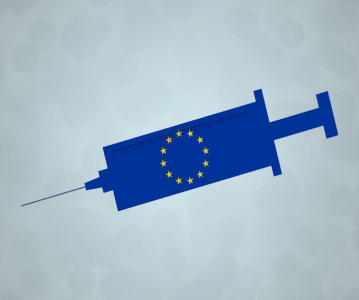Monoclonal Antibodies Market for Gastric and Esophageal Cancers to Double by 2019

As a result of favorable market conditions in terms of US pricing structures and the anticipated approval of a number of late-stage pipeline drugs, the market value for monoclonal antibodies (mAbs) in gastric and esophageal cancer treatment is expected to double by 2019, according to a new report from business intelligence provider GBI Research.
The company’s latest report* forecasts that the market for mAbs in gastric cancer will grow from $256 million in 2012 to $501 million by 2019, at a Compound Annual Growth Rate (CAGR) of 10%, while the mAbs market for esophageal cancer is expected to climb from $137 million in 2012 to $265 million by 2019, at a CAGR of 9.9%.
Currently, there is only one mAb — Herceptin — available for the two indications. Primarily marketed for breast cancer, Herceptin gained approval from the US FDA for the treatment of gastric and esophageal cancers in 2010. However, its patent is expected to expire in the European Union in 2014 and in the US by 2019.
Dominic Trewartha, Analyst for GBI Research, says: “Overall, Herceptin is able to improve survival times to a significant extent when compared with chemotherapy alone, without adding a substantial amount of side effects or safety concerns in Human Epidermal growth factor Receptor-2 (HER-2) positive patients. However, its efficacy is not sufficient to bring about a sustained remission in most cases of advanced disease, or to replace conventional chemotherapy completely in earlier stages.”
According to GBI Research, the pipeline for both indications is moderate, with 33 mAbs for gastric cancer and eight for esophageal cancer. The late-stage pipelines also include a number of novel drugs that have shown some clinical and commercial potential. However, none of these products are anticipated to offer significant improvements over existing therapies.
“There is still a need for stronger products with superior efficacy to treat both gastric and esophageal cancers in the metastatic and early settings periods. Also, with a large HER-2 negative patient population that is not eligible for treatment with Herceptin, there is a strong unmet need and opportunity for therapies that are effective in these patients, including those who overexpress HER-2,” Trewartha concludes.
Related News
-
News Patients vs Pharma – who will the Inflation Reduction Act affect the most?
The Inflation Reduction Act brought in by the Biden administration in 2022 aims to give better and more equitable access to healthcare in the USA. However, pharma companies are now concerned about the other potential costs of such legislation. -
News CPHI Podcast Series: What does the changing US Pharma market mean for industry and patients alike?
In this week's episode of the CPHI Podcast Series Lucy Chard, Digital Editor for CPHI Online is joined by James Manser to discuss the political and market changes in the US pharma field. -
News CPHI Barcelona Annual Report illuminates industry trends for 2024
The CPHI Annual Survey comes into it’s 7th year to report on the predicted trends for 2024. Over 250 pharma executives were asked 35 questions, with their answers informing the industry landscape for the next year, spanning all major pharma marke... -
News Which 10 drugs are open to price negotiation with Medicare in the USA?
The Centres for Medicare & Medicaid Services, under the Biden administration in the USA, has released a list of the 10 drugs that will be open to price negotiations as part of the new legislation under the Inflation Reduction Act (IRA). -
News EU Medical Devices Regulation causes unintended disappearances of medical devices for children, doctors state
Doctor groups and associations have appealed to the EU to correct the EU Medical Devices Regulation law that may cause unintended shortages of essential drug and medical devices for children and rare disease patients. -
News 10 Major Drug Approvals So Far in 2023
Last year, 37 novel drugs were approved by the FDA, this was a high number for such a category, and covered many fields including oncology, demonstrating how promising further research is, and how it is only continuing to build. To date, there are alre... -
News Detecting Alzheimer's disease with a simple lateral flow test
A novel rapid diagnostic test for early-stage Alzheimer's disease has been developed using a biomarker binder from Aptamer Group along with technology from Neuro-Bio, the neurodegenerative disease experts. -
News CPHI Podcast Series: outsourcing and manufacturing trends
Listen to the CPHI Podcast Series this June to hear Gil Roth of the PBOA speak with Digital Editor Lucy Chard about the biggest trends and topics to watch in pharma outsourcing and manufacturing at the minute.
Position your company at the heart of the global Pharma industry with a CPHI Online membership
-
Your products and solutions visible to thousands of visitors within the largest Pharma marketplace
-
Generate high-quality, engaged leads for your business, all year round
-
Promote your business as the industry’s thought-leader by hosting your reports, brochures and videos within your profile
-
Your company’s profile boosted at all participating CPHI events
-
An easy-to-use platform with a detailed dashboard showing your leads and performance







